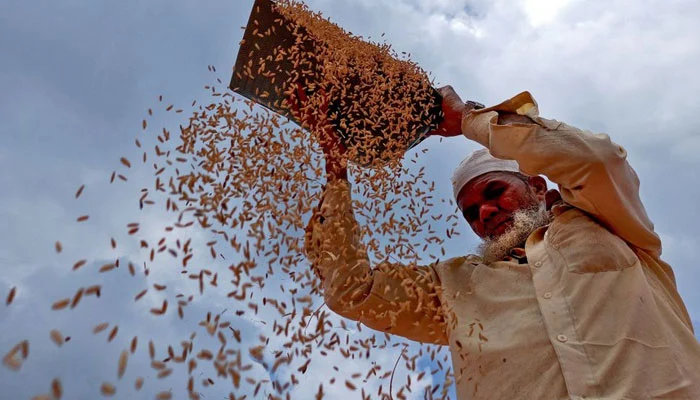SINGAPORE: Drought or too much rain, the war in Ukraine and high energy costs look set to curb global farm production again next year, tightening supplies, even as high prices encourage farmers to boost planting.
Production of staples such as rice and wheat is unlikely to replenish depleted inventories, at least in the first half of 2023, while crops producing edible oils are suffering from adverse weather in Latin America and Southeast Asia.
“The world needs record crops to satisfy demand. In 2023, we absolutely need to do better than this year,” said Ole Houe, director of advisory services at agriculture brokerage IKON Commodities in Sydney.
“At this stage, it looks highly unlikely, if we look at the global production prospects for cereals and oilseeds.”
Wheat, corn and palm oil futures have from dropped from the record or multi-year highs but prices in the retail market remain elevated and tight supplies are forecast to support prices in 2023.
Why it matters
With food prices climbing to record peaks this year, millions of people are suffering across the world, especially in poorer nations in Africa and Asia already facing hunger and malnutrition.
Food import costs are already on course to hit a nearly $2 trillion record in 2022, forcing poor countries to cut consumption.
Benchmark Chicago wheat futures jumped to an all-time high of $13.64 a bushel in March after Russia’s invasion of key grain exporter Ukraine reduced supplies in a market already hit by adverse weather and post-pandemic restrictions.
Corn and soybeans climbed to their highest in a decade, while Malaysia’s benchmark crude palm oil prices climbed to a record high in March.
Wheat prices have since dropped to pre-war levels and palm oil has lost around 40% of its value, amid fears of a global recession, China’s COVID-19 restrictions and an extension of the Black Sea corridor deal for Ukrainian grain exports.
What does it mean for 2023?
While flooding in Australia, the world’s second-largest wheat exporter, in recent weeks has caused extensive damage to the crop which was ready for harvest, a severe drought is expected to shrink Argentina’s wheat crop by almost 40%.
This will reduce global wheat availability in the first half of 2023.
A lack of rainfall in the US Plains, where the winter crop ratings are running at the lowest since 2012, could dent supplies for the second half of the year.
For rice, prices are expected to remain high as long as export duties imposed earlier this year by India, the world’s biggest supplier, remain in place, traders said.
“Rice availability in most exporting countries is pretty thin except India, but it has export duties in place to reduce sales,” said one Singapore-based trader at an international trading company.
“If we get a production shock in any of the top exporting or importing counties, it can really swing the market upside.”
The outlook for corn and soybeans in South America looks bright for its harvest in early 2023, although recent dryness in parts of Brazil, the world’s top bean exporter, has raised worries.
US domestic supplies of key crops including corn, soybeans and wheat are expected to remain snug into 2023, according to the US Department of Agriculture.
The agency is forecasting US corn supplies to fall to a decade low before the 2023 harvest, while soybean stocks were seen at a seven-year low and wheat ending stocks are forecast at the lowest in 15 years.
Palm oil, the world’s most consumed edible oil, is taking a hit from tropical storms across Southeast Asia where high costs have resulted in lower use of fertilizer.
Still, higher prices of grains and cereals have encouraged farmers to plant more crops in some countries including India, China and Brazil.
“Planting is higher in several countries but the output is expected to remain subdued due to adverse weather and other factors,” said Ole. “Production is unlikely to be enough to replenish supplies which have been drawn down.”
Explore the Reuters round-up of news stories that dominated the year, and the outlook for 2023.

 Latest News3 days ago
Latest News3 days ago
 Latest News3 days ago
Latest News3 days ago
 Entertainment3 days ago
Entertainment3 days ago
 Latest News3 days ago
Latest News3 days ago
 Latest News3 days ago
Latest News3 days ago
 Latest News3 days ago
Latest News3 days ago
 Latest News3 days ago
Latest News3 days ago
 Latest News3 days ago
Latest News3 days ago

























